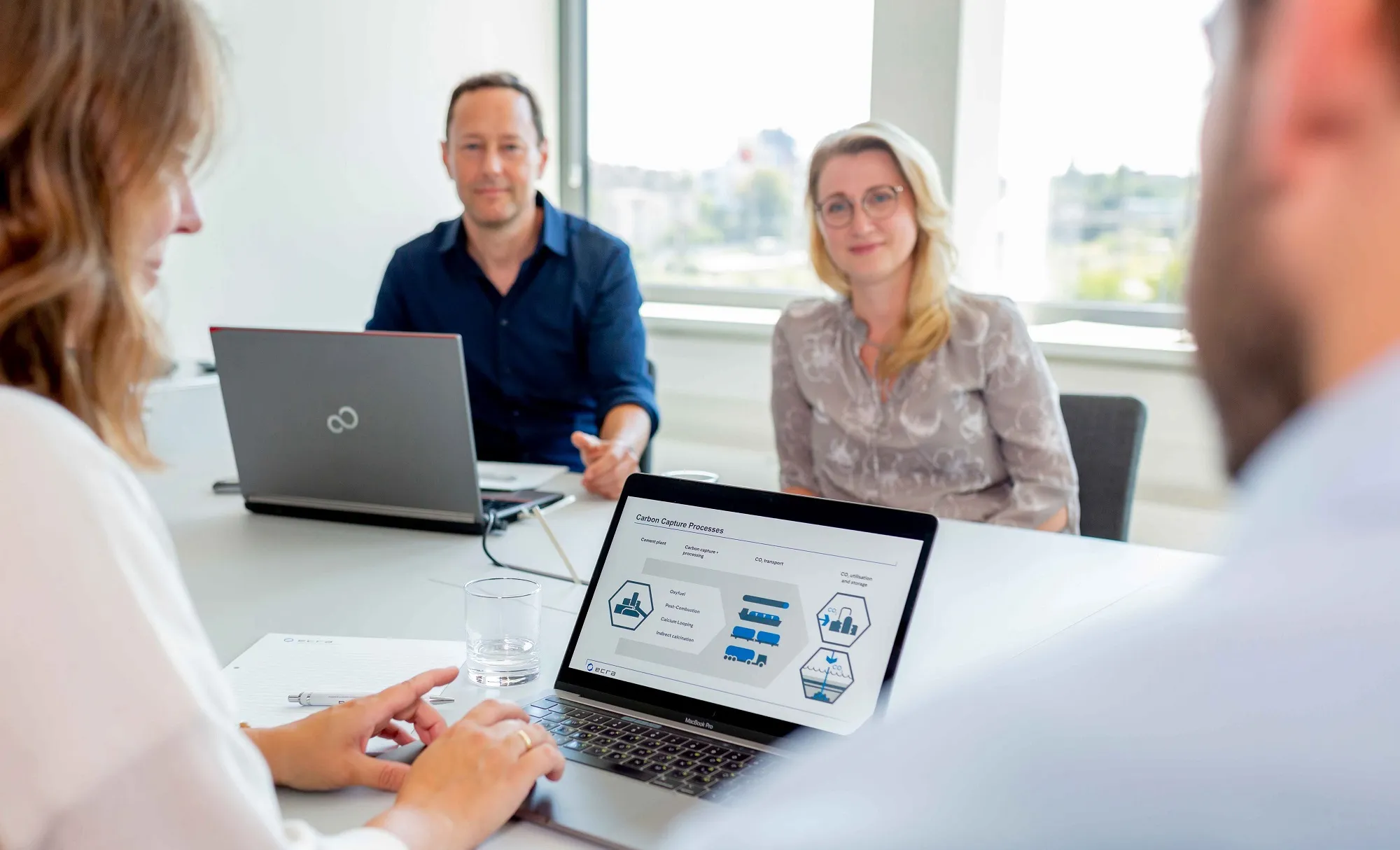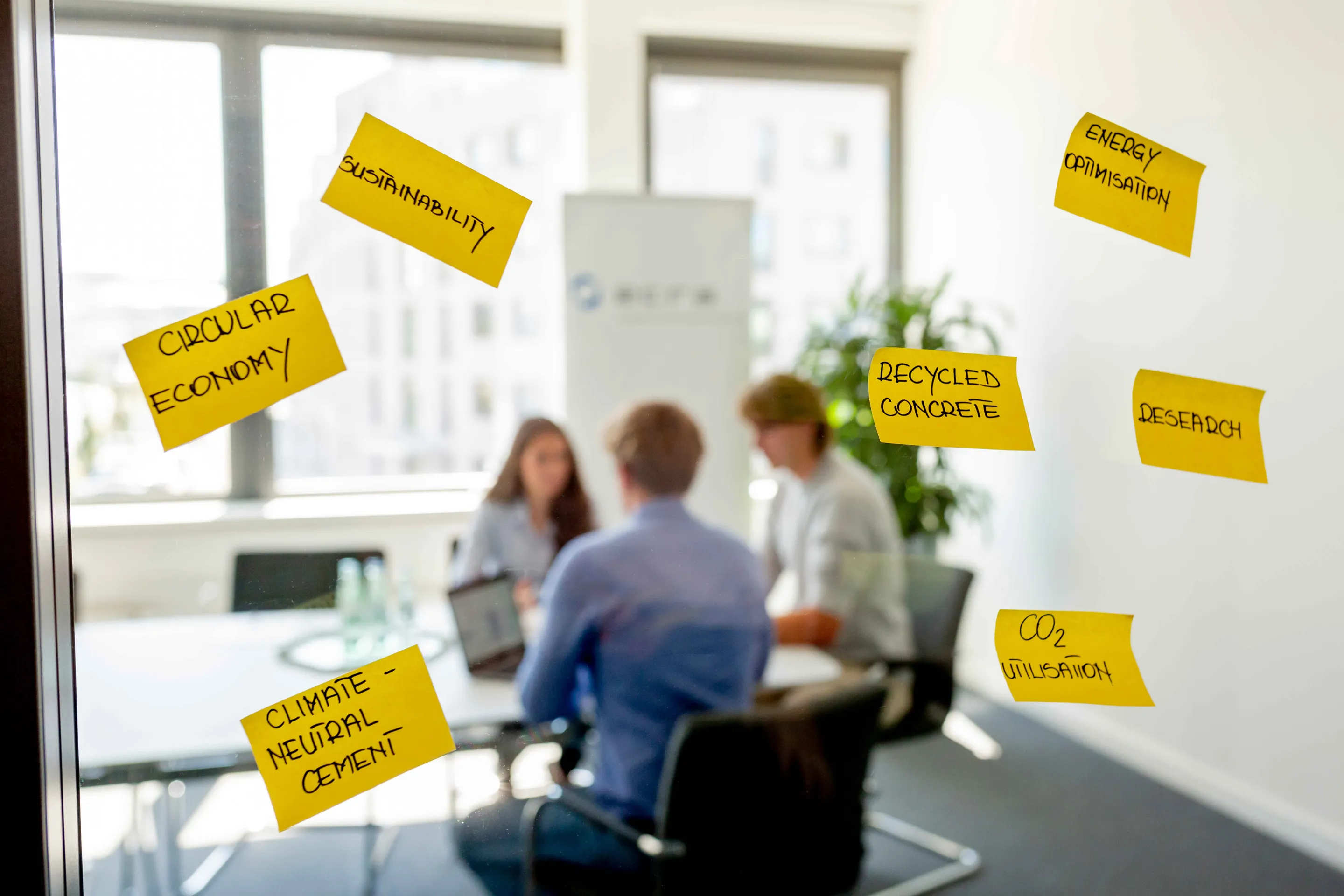
Seminars & Workshops
ECRA's seminar programme provides a range of pan-European seminars and workshops covering the issues of major importance to the cement industry.

Seminars & Workshops
ECRA's seminar programme provides a range of pan-European seminars and workshops covering the issues of major importance to the cement industry.
Online Seminar "Latest developments in carbon capture technologies in the cement industry"
In this online seminar, you will gain a comprehensive overview of the latest advances in carbon capture technology for use in cement plants, including strategies to reduce the supplementary energy requirements through effective heat integration. You will explore lessons learned from carbon capture projects that are already operational, under construction, or in the planning phase, helping you understand practical challenges and solutions. Furthermore, the seminar will facilitate comprehension of the requisite conditions for the capture application, which must be adapted to the specific characteristics of each plant site. ECRA draws upon its own extensive experience in CCUS research and benefits from its strong network of connections within the research community and among its active members. This enables us to invite expert speakers representing internationally acknowledged research projects and from leading suppliers of gas and equipment, giving you access to the latest knowledge and best practices.
Online Seminar "CO₂ specification"
As the cement industry advances towards climate neutrality, carbon capture and storage (CCS) and carbon capture utilisation (CCU) have become essential technologies. Understanding the specification and phase behaviour of CO₂ in pressurised form is critical for its safe and efficient capture, transport, and storage. In this ECRA seminar, you will gain a clear overview of key parameters influencing the CO₂ value chain, from capture at the source to transport by ship, train, or pipeline, and final storage or utilisation. You will explore how CO₂ composition affects the safety and efficiency of transport systems and how it impacts the cost of purification steps in the upstream chain. The seminar will also cover measurement techniques for CO₂ flow and composition in transport systems. Aspects of particular relevance to the cement industry will be highlighted.
Online Seminar "Modern cement grinding"
As cement producers continue to decrease the clinker factor and integrate new materials into production, efficient and flexible grinding technologies become increasingly important. In this ECRA seminar, you will learn about the newest trends and developments in cement grinding technology, gaining insights into further developed established technologies as well as new approaches in comminution equipment. You will explore how separate ultra-fine grinding and separation is evolving and understand how this approach enables unusual particle size distributions to fully utilise the hydraulic potential of various materials. Furthermore, you will learn about different ways of replacing clinker with SCM’s and the production of those.
Online Seminar "State-of-the-art calciner technology"
In this online seminar, you will learn about the latest calciner designs with a focus on gasification and pre-combustion of alternative fuels. You will explore how calciner operation influences NOₓ and CO emissions and how alternative fuels can be fed at several firing points at different temperature levels. You will gain insights into physical criteria (e.g., particle size) and chemical criteria (e.g., chlorine, sulphur, alkali, phosphate content) that are relevant for selecting alternative fuels, as these factors impact kiln operation and emissions. The seminar will provide an overview of state-of-the-art calciner concepts, the use of alternative fuels, and strategies for controlling NOₓ and CO emissions through fuel, air, or meal staging. You will also learn about current thermal pre-treatment systems for the burning or gasification of alternative fuels, including different concepts.

